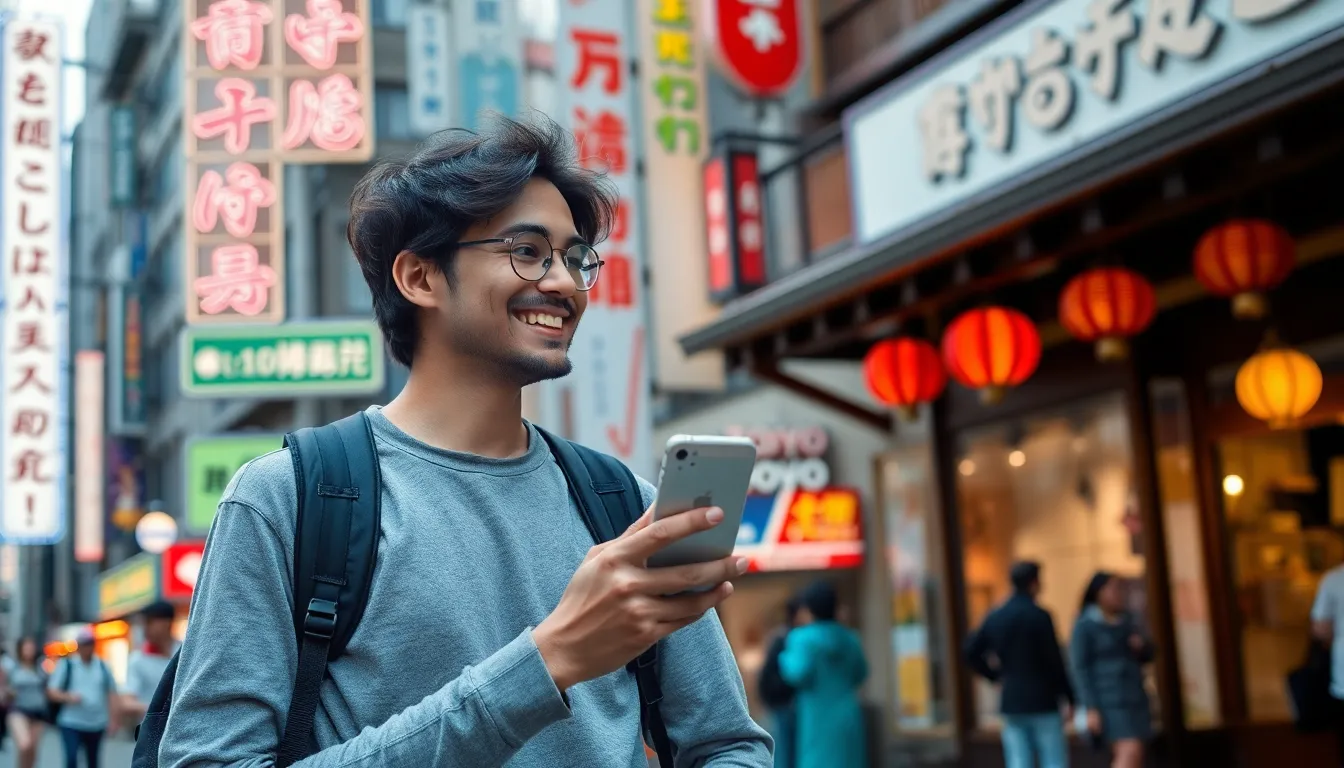Planning a trip to Japan? Exciting! But before diving into sushi and cherry blossoms, there’s one burning question: will that trusty Verizon iPhone of yours work in the land of the rising sun? Imagine trying to navigate Tokyo’s bustling streets or posting that perfect Instagram shot, only to find out your phone’s gone on vacation too.
Table of Contents
ToggleUnderstanding Verizon iPhones
Verizon iPhones offer various features that enhance their usability abroad. Checking compatibility with international networks is crucial for travelers.
Compatibility with International Networks
Verizon iPhones often support GSM and CDMA networks, making them versatile. Most countries, including Japan, predominantly use GSM technology for mobile services. Travelers should confirm that their specific iPhone model is unlocked before departure. Unlocking allows the phone to operate on local networks in Japan. Ensuring compatibility assists in avoiding connectivity issues while abroad. Various apps and services can verify device compatibility with available networks, enhancing travel experience.
Frequency Bands Used by Verizon
Verizon utilizes multiple frequency bands in the United States. The bands used include LTE bands 2, 4, 5, 13, 66, and 71. Japanese carriers, on the other hand, primarily utilize bands 1, 3, 8, and 18 for LTE. A Verizon iPhone compatible with these bands can access local networks without issues. Checking the device’s specifications before traveling guarantees optimal connection quality. Awareness of these bands enables travelers to plan their mobile needs effectively, ensuring communication remains seamless during their time in Japan.
Traveling to Japan

Travelers can rely on their Verizon iPhones while exploring Japan. Ensuring a smooth connection requires knowledge of the country’s mobile network landscape.
Mobile Network Infrastructure in Japan
Japan boasts a robust mobile network infrastructure. Major carriers like NTT Docomo, SoftBank, and KDDI dominate the market. These operators provide extensive coverage across urban areas and rural locations. LTE networks are widespread, offering high-speed connectivity. Travelers can enjoy seamless internet access, especially in cities like Tokyo and Osaka. Compatibility with international standards simplifies the process for Verizon iPhone users. Unlocking devices enables access to local networks smoothly.
Types of Cellular Networks Available
Japan primarily employs GSM technology. Verizon iPhones that support GSM can connect to various local carriers. CDMA technology is less common in Japan, but some cities may still offer it. Travelers should confirm device specifications before departure. Such verification ensures compatibility with Japanese networks. Additionally, 4G and 5G networks enhance the overall mobile experience. Choosing the right network can enable faster data speeds and improved call quality. Strategies for finding a suitable network include checking coverage maps online prior to traveling.
Using Your Verizon iPhone in Japan
Travelers can confidently use their Verizon iPhone in Japan by ensuring proper setup before departure. It’s crucial to activate international roaming to maintain service abroad.
Activating International Roaming
To activate international roaming, access the Verizon account online or through the My Verizon app. After selecting the travel plan suited for the trip, confirm activation a day prior to travel. Travelers should review the charges associated with international service to avoid unexpected fees. Keeping the device charged is advisable since the roaming feature can drain battery life quickly. Verizon provides specific instructions based on the device model, ensuring compatibility with Japan’s networks.
Purchasing a Local SIM Card
Purchasing a local SIM card in Japan offers a convenient alternative for travelers. Several retailers, including convenience stores and electronics shops, sell SIM cards compatible with Verizon iPhones. It is essential to verify that the purchased card supports data and voice services during the stay. Local SIM cards often provide competitive rates for data use, enhancing connectivity while exploring. Travelers may need to present identification at the point of sale, so carrying a passport is beneficial. Options for short-term plans are abundant, allowing users to select the duration that best fits their travel itinerary.
Potential Issues and Solutions
Travelers may encounter connectivity challenges while using a Verizon iPhone in Japan. Common issues arise from network compatibility and unlocked device status.
Common Connectivity Problems
Unlocked Verizon iPhones may face difficulty connecting to Japanese networks. Travelers sometimes experience limited data access or no service in certain areas. GSM technology serves as the primary network standard in Japan, and some models may not support all frequency bands used by local carriers. Certain locations, particularly rural areas, might provide varying signal strength. It’s essential for travelers to check local coverage maps before venturing out.
Troubleshooting Tips for Travelers
Verifying network settings proves crucial for seamless connectivity. Travelers should access their iPhone’s settings to ensure the correct network is selected. Restarting the device can resolve temporary glitches. If problems persist, consider removing and reinserting the SIM card, ensuring it’s seated correctly. Utilizing Wi-Fi as a backup offers a reliable option for internet access while away from cellular service. Checking for updates or reinstalling the carrier settings may resolve lingering issues as well.
Traveling to Japan with a Verizon iPhone can be hassle-free if the necessary steps are taken. Ensuring the device is unlocked and compatible with local networks is key to maintaining connectivity. With Japan’s advanced mobile infrastructure travelers can enjoy reliable service in both urban and rural areas.
Activating international roaming before departure and considering a local SIM card can further enhance the experience. By preparing in advance and understanding potential connectivity challenges travelers can confidently navigate Japan while staying connected.




